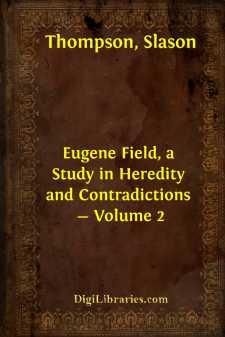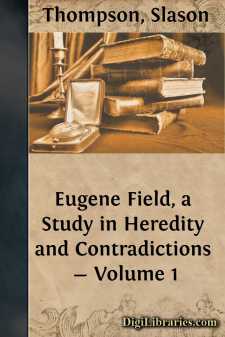Categories
- Antiques & Collectibles 13
- Architecture 36
- Art 48
- Bibles 22
- Biography & Autobiography 816
- Body, Mind & Spirit 145
- Business & Economics 28
- Children's Books 17
- Children's Fiction 14
- Computers 4
- Cooking 94
- Crafts & Hobbies 4
- Drama 346
- Education 58
- Family & Relationships 59
- Fiction 11834
- Foreign Language Study 3
- Games 19
- Gardening 17
- Health & Fitness 34
- History 1378
- House & Home 1
- Humor 147
- Juvenile Fiction 1873
- Juvenile Nonfiction 202
- Language Arts & Disciplines 89
- Law 16
- Literary Collections 686
- Literary Criticism 179
- Mathematics 13
- Medical 41
- Music 40
- Nature 179
- Non-Classifiable 1768
- Performing Arts 7
- Periodicals 1453
- Philosophy 66
- Photography 2
- Poetry 897
- Political Science 203
- Psychology 45
- Reference 154
- Religion 516
- Science 126
- Self-Help 85
- Social Science 82
- Sports & Recreation 34
- Study Aids 3
- Technology & Engineering 59
- Transportation 23
- Travel 463
- True Crime 29
Our website is made possible by displaying online advertisements to our visitors.
Please consider supporting us by disabling your ad blocker.
Eugene Field, a Study in Heredity and Contradictions - Volume 2
by: Slason Thompson
Categories:
Description:
Excerpt
CHAPTER I
OUR PERSONAL RELATIONS
In the loving "Memory" which his brother Roswell contributed to the "Sabine Edition" of Eugene Field's "Little Book of Western Verse," he says: "Comradeship was the indispensable factor in my brother's life. It was strong in his youth: it grew to be an imperative necessity in later life. In the theory that it is sometimes good to be alone he had little or no faith." From the time of Eugene's coming to Chicago until my marriage, in 1887, I was his closest comrade and almost constant companion. At the Daily News office, for a time, we shared the same room and then the adjoining rooms of which I have spoken. Field was known about the office as my "habit," a relationship which gave point to the touching appeal which served as introduction to the dearly cherished manuscript copy, in two volumes, of nearly one hundred of his poems, which was his wedding gift to Mrs. Thompson. It was entitled, in red ink, "Ye Piteous Complaynt of a Forsooken Habbit; a Proper Sonet," and reads:
Ye boone y aske is smalle indeede
Compared with what y once did seeke—
Soe, ladye, from yr. bounteous meede
Y pray you kyndly heere mee speke.
Still is yr. Slosson my supporte,
As once y was his soul's delite—
Holde hym not ever in yr. courte—
O lette me have hym pay-daye nite!
One nite per weeke is soothly not
Too oft to leese hym from yr. chaynes;
Thinke of my lorne impoverisht lotte
And eke my jelous panges and paynes;
Thinke of ye chekes y stille do owe—
Thinke of my quenchlesse appetite—
Thinke of my griffes and, thinking so,
Oh, lette me have hym pay-daye nite!
Along the border of this soulful appeal was engrossed, in a woful mixture of blue and purple inks: "Ye habbit maketh mone over hys sore griffe and mightylie beseacheth the ladye yt she graunt hym ye lone of her hoosband on a pay-daye nite."
Through those years of comradeship we were practically inseparable from the time he arrived at the office, an hour after me, until I bade him good-night at the street-car or at his own door, when, according to our pact, we walked and talked at his expense, instead of supping late at mine. The nature of this pact is related in the following verse, to which Field prefixed this note: "While this poem is printed in all the 'Reliques of Ye Good Knights' Poetrie,' and while the incident it narrates is thoroughly characteristic of that Knightly Sage, the versification is so different from that of the other ballads that there is little doubt that this fragment is spurious. Prof. Max Beeswanger (Book III., page 18, old English Poetry) says that these verses were written by Friar Terence, a learned monk of the Good Knight's time."
THE GOOD KNIGHT TO SIR SLOSSON
The night was warm as summer
And the wold was wet with dew,
And the moon rose fair,
And the autumn air
From the flowery prairies blew;
You took my arm, ol' Nompy,
And measured the lonely street,
And you said, "Let's walk
In the gloom and talk—
'Tis too pleasant to-night to eat!"
And you quoth: "Old Field supposin'
Hereafter we two agree;
If it's fair when we're through
I'm to walk with you—
If it's foul you're to eat with me!"
Then I clasped your hand, ol' Nompy,
And I said: "Well, be it so."
The night was so fine
I didn't opine
It could ever rain or snow...!



